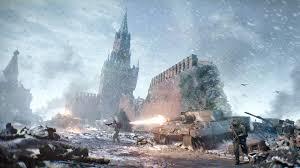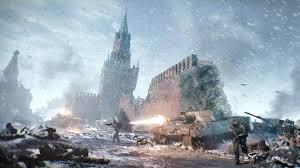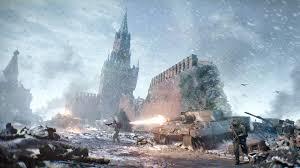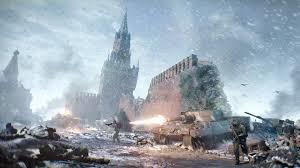There’s no doubt that the fact that the global community functions more or less consistently is predetermined by a certain form of social and political order. In other words, all the relations between individuals, social groups and political powers are subject to a certain kind of world order, to the set of norms and regulations that maintain stability and keep the global international system from collapsing.
As humans are not only individual beings but also social ones, they cannot rely only upon their own experiences, feelings, and desires. People are to unite into communities and comply with certain rules of living in order to ensure successful and fruitful interaction with other members of society. These rules are dictated by a definite social order which is, in fact, a set of regulations necessary for normal functioning within the society. Guiding people’s behavior and actions in all spheres of life, social order incorporates various factors of influence that keep individuals from breaking social (or political) laws and bringing the global community to disorder. In fact, this could include moral principles and restrictions, cultural traditions or other factors, but one of the strongest and most influential drives maintaining order in the world in all levels of life is fear. Fear is a concept related to the social structure of the world and cultural values. That obviously means that fear doesn’t come from the inside of our minds, it is predominantly preconditioned by the social norms and culture.




Fear of consequence and punishment
Since we were children, we’ve been taught by our parents and social teachers to distinguish between the good and the bad, we were taught the socially accepted patterns of behavior growing up in a certain social environment and following the examples of more experienced adults. Parents and society implanted the understanding of what should and what shouldn’t be done into our minds, showing us that violation of the norms could lead to negative consequences or punishment. For example, children generally don’t break the rules settled by parents as they know that they will be punished, or once they break the rule and get punished, they understand that they should never act in that way. Thus, people are restricted since childhood by fear of punishment, or probably fear of responsibility for their actions. In general, fear, in this case, is related to various sorts of negative consequences which an individual could face after going against the social norms. This also concerns the level of legal regulations settled by a certain country’s law. For instance, it is rather obvious that if individual murders or steals, he/she will inevitably be punished in a legal way: apprehension – trial – imprisonment. In fact, the legislation defines the frames of acceptable behaviors for citizens prescribing a proper kind of punishment for misbehavior. Normally, people tend to comply with the rules settled by society and law due to a possible negative consequence that could follow violation of these rules. Putting such mechanism into perspective, one could see that the whole global community is actually built and organized according to these principles: individuals follow the conventional view on how they should behave and what they should do in order not to face negative consequences. Talking about this system from a global perspective, it is possible to outline at least four examples in which the (de)motivational power of fear is reflected.
Attached file: Fear and Order.docx
Click download to get access to a full version of the paper




Religion
Religious implementation of fear is probably the most blurred and uncertain (in fact, as religious issues themselves). With the Holy Scriptures dictating the laws of living to the adherents of different denominations, religion poses one of the most influential factors restricting people across the globe from misbehaving. In fact, religion is rather similar to the governments of countries and institutions as it also has authority among people. However, this type of authority isn’t reinforced by visible punishment forms that could follow disobedience – this is another type of authority, probably inner one. The most common form of fear cultivated by religion and church is ‘fear of loss of salvation’3, meaning a kind of nonphysical punishment for violation of religious laws during an individual’s mortal life. It has to be mentioned that the awe-inspiring power of religion is not related to some local area – it is global with the largest religions being spread across the globe with millions of adherents being influenced by them. Against this background, religion functions as one of the main sources of fear that help maintains order in the world.
Government machine
Another world’s fundamental force widely cultivating fear is politics. In the national level, the practice of using fear as the main restricting factor can be observed in the functioning of numerous strict state regimes, totalitarian in particular. One must admit that imposing fear has been a primary purpose of many regimes and governors throughout history. According to an interesting legend about a dictator, having power over the people is taking everything away from them and making them afraid and thankful for protection given to them. In this case, fear plays a key role in maintaining order and balance in a totalitarian state. In other words, totalitarianism is literally based on fear; fear is its perfect tool. Stalinist Soviet Union is probably a perfect specimen of a severe totalitarian state cultivating fear as the crucial means of manipulating people. Having created the well-working propaganda and punitive machine, the dictator had managed to get a tight grip of a large country and maintain order in it viciously suppressing or eliminating dissentients. Consequently, this harsh fear-imposing policy brought fruitful results as people had fear not only of acting but also thinking differently. “A Stalin functionary admitted, "Innocent people were arrested: naturally - otherwise no one would be frightened. If people were arrested only for specific misdemeanors, all the others would feel safe and so become ripe for treason”. Hence, fear in totalitarian regimes is of considerable importance, being the main tool of oppression and maintaining strict and irrevocable order on the national scale.




Fear of crime and war on terror
international level. Fear of crime refers to the fear of crime victimization and is related to social factors, psychological risk perceptions, public perceptions, and experiences. This type of fear is widely cultivated in the United States as well as other countries vulnerable to terrorist attacks. The miserable events of 9/11 have dramatically enhanced the fear of crime victimization among the citizens and government members who initiated the beginning of an intense war on terror (both to preclude terroristic attacks and to fight terrorists – domestic or international). In fact, the 9/11 events were so exaggerated in mass media playfully operating the phrases ‘to create fear’ that the fear of crime in US citizens increased to a critically high level.
Thinking of fear of crime from the perspective of war on terror, we can conclude that excessive emphasis laid on the threat of further terror attacks was intended to enhance citizens’ confidence in the necessity of antiterrorist policy and measures. Moreover, these events convinced the government to begin the war on terror and work on efficient preventive measures. Judging by these events and their effect, one can see that the role of fear in national security system improvement cannot be overstated. What is more, antiterrorist activity often goes beyond the borders of one state opening the opportunity for cooperation between different countries’ governments in order to fight the global threat.
The World War and imperial ambitions
Except playing a crucial role in maintaining order on the local scale, fear is undoubtedly a powerful restricting factor helping to maintain order in the international arena. Since the World War II has shown the humanity devastating and deadly outcomes to which the use of a nuclear weapon can lead, the global community might have been a little bit more careful in international relations and seeking the ways of disagreements’ solution. Nevertheless, production and development of nuclear arms have been progressing since that time and up to nowadays, so that nuclear capacities are now possessed by numerous states including – of course, USA and Russian Federation. In this respect, I cannot but mention the conflict developing in the territory of Ukraine with Russia promoting its imperial ambitions in a blatant and violent way. As the tensions tend to escalate all the more and the conflict (as well as Russia’s ambitions) goes beyond the borders of local conflict, those in power grow more and more concerned of maintaining peace and order and preventing global warfare. While Russia keeps on sending its armed forces to Ukraine without declaring war, assert claims on the Arctic region and imperil the security of the bordering states, the international community is attempting to pacify this country’s government using all possible diplomatic ways, imposing sanctions on Russian economy and assisting in negotiations between the presidents of the attacked country and the aggressor.
This is an example is now the most relevant and burning as the world is literally on the edge of the new large-scale warfare. However, the political leaders have more reason now in dealing with such issues as the global community and they personally realize what destructive effect could be caused to the world in case of the new global military conflict. There’s a clear understanding of possible disastrous consequences as the world has enough nuclear capacity to destroy itself. And there’s fear of those consequences that keeps the politicians from recklessly pushing the button and forces them to use diplomatic means of problem-solving.
Drawing the conclusion to the arguments stated above, I would suppose that fear is probably the most influential restricting factor that keeps the world from collapsing. Naturally – it is often used for malicious purposes, yet it successfully keeps both social and political powers from making reckless decisions supporting the settled system of norms that will hopefully be firm enough to stand the challenges the global community faces.